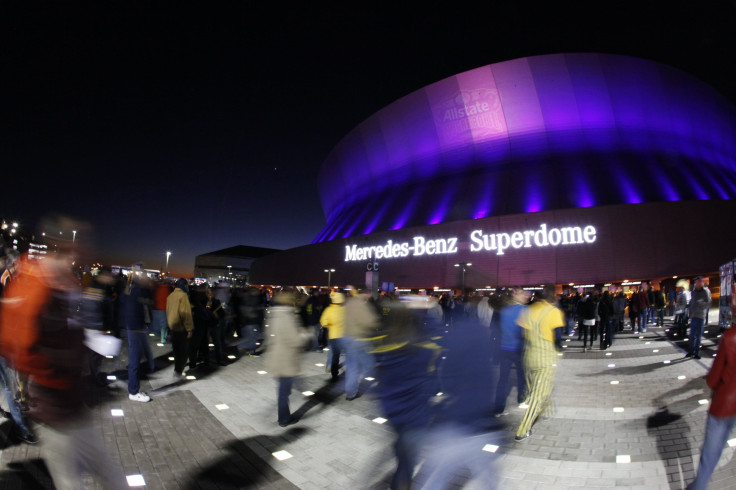Super Bowl 2013: How Sporting Events Have Helped Rebuild New Orleans

New Orleans is a perennial Super Bowl host and will hold the NFL’s biggest game for the tenth time in 2013 -- a record only Miami can match. But this year’s game will be the city’s first since Hurricane Katrina came walloping through in 2005, and it’s a landmark date the Crescent City is especially proud of.
For all of its bead-throwing, jazz-playing and parade-marching, New Orleans is really a sports town. Indeed, sports played a major role in luring visitors back after the storm.
The Superdome itself is emblematic of the idea that the city rebuilt itself one sporting event at a time. A makeshift shelter and scene of some of the most gut-wrenching images to come out of Katrina, the facility reopened in 2006 after a massive $185 million refurbishment for the Saints’ home opener on Sept. 25. The team played to a sell-out crowd and a record audience on ESPN, luring U2 and Green Day for pregame performances and former President George H. W. Bush for the coin toss. The Saints won the game handily, and the event marked a major milestone in the city’s rebuilding effort.
Last year around this time, New Orleans had a whirlwind quarter, hosting the Sugar Bowl, the BCS National Championship and the NCAA Final Four.
Indeed, when New Orleans hosts Super Bowl XLVII this year, it will mark the grand finale of an unprecedented series of sporting events, which, since the storm hit in 2005, have had an economic impact well in excess of $1 billion.
The Super Bowl is expected to pump another $432 million into New Orleans’ veins and draw about 150,000 people, 75,000 of whom will attend the actual game, according to Kelly Schulz of the New Orleans CVB.
Schultz said the exposure that comes with being a host city for the Super Bowl is priceless.
“You can’t buy that kind of publicity. You can’t manufacture it. It’s extremely valuable for something like tourism, which is all based on images and perception.”
Even little things like when the announcers on CBS or ESPN talk about where they ate or what they saw can help, she said.
“These natural comments are really valuable, and they show that New Orleans is a hot destination right now.”
The last time New Orleans hosted the Super Bowl was 2002. It was the first event of its kind after 9/11, and the city had to introduce a wave of new security measures. More than a decade later, the Super Bowl has grown exponentially, posing yet another set of challenges.
But the city lives by the motto laissez les bons temps rouler ("let the good times roll"), so it should come as no surprise that the Big Easy has big plans, including 12 parades, a Super Bowl Gospel Celebration on Feb. 1 and an interactive NFL Experience theme park at the New Orleans Ernest N. Morial Convention Center.
The Host Committee also prepared a Super Bowl Boulevard sandwiched between the French Quarter and the Mississippi River. The street, which will soon be a requirement for all Super Bowl hosts, will be open daily from Jan. 31 through Super Bowl Sunday and feature a rotating lineup of local musicians, popular food and beverage vendors, and interactive fan events.
This year, America’s biggest sporting event coincides with its biggest party: Mardi Gras. In fact, many have dubbed it SuperGras.
Most assume Mardi Gras is a one-day event on Fat Tuesday (Feb. 12), but the carnival is really a month-long celebration, and Schultz said the city had to move it around to accommodate the NFL’s big week.
“We have Mardi Gras this weekend, then it’s Super Bowl weekend, then it’s Mardi Gras again,” she joked, noting that the NFL will completely take over from Jan. 31 to Feb. 3. Even the convention center, typically the staging ground for Mardi Gras floats, will be in full NFL regalia for the NFL Experience.
By the time Fat Tuesday comes, New Orleans will have lured another million people, making this year’s combined revelry a SuperGras indeed. And New Orleans is ready for the bump. The city’s 5 billion tourism industry now employs 78,000 people. New hotels have popped up while old ones have been renovated. There are even 300 more restaurants to handle the crowds than there was the day Katrina hit.
Call it a slam dunk or a Hail Mary. However you see it, through sports, New Orleans has scored a touchdown.
© Copyright IBTimes 2024. All rights reserved.






















